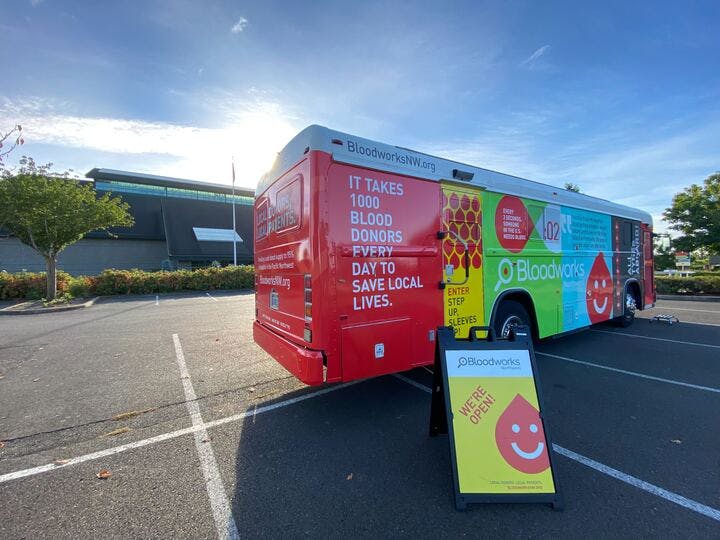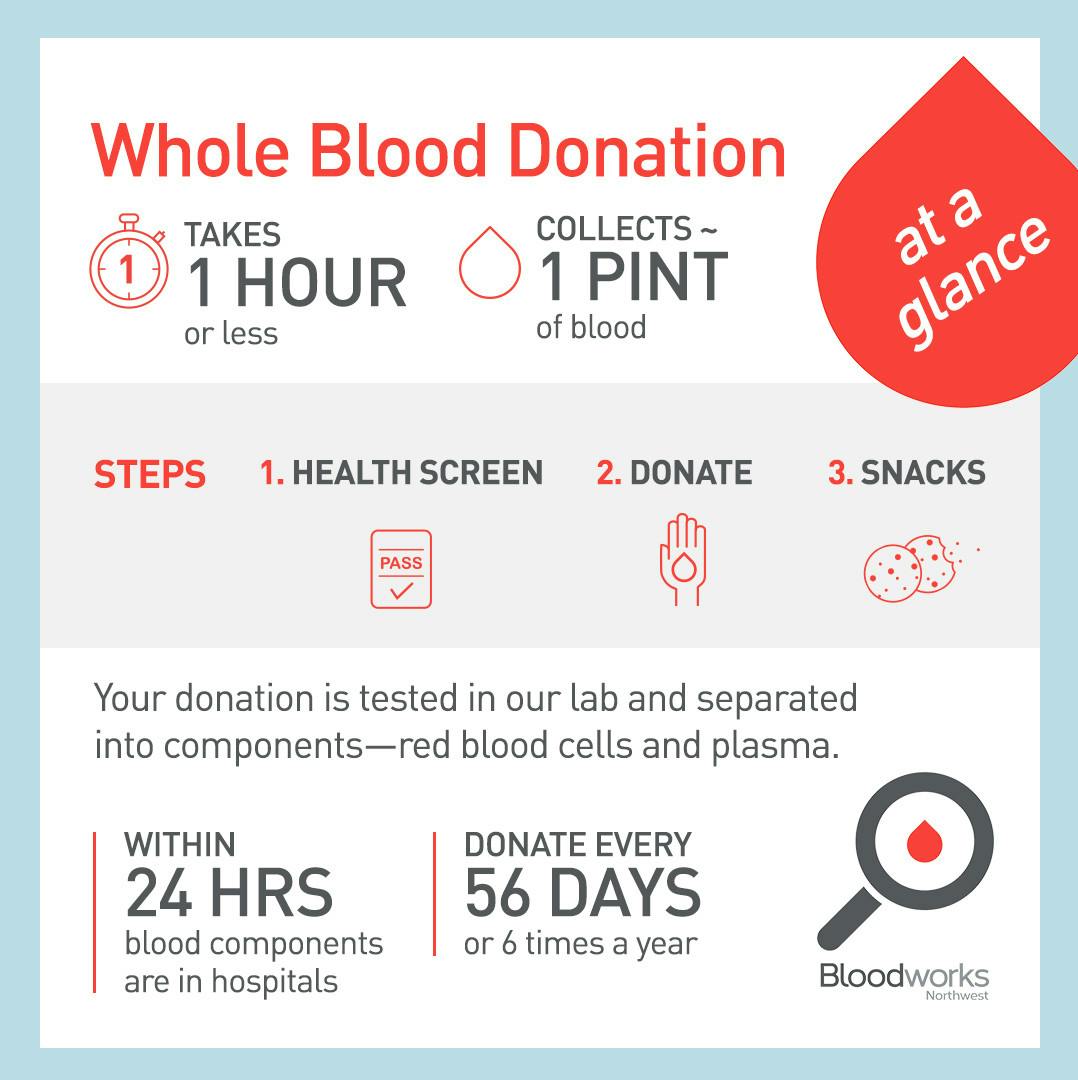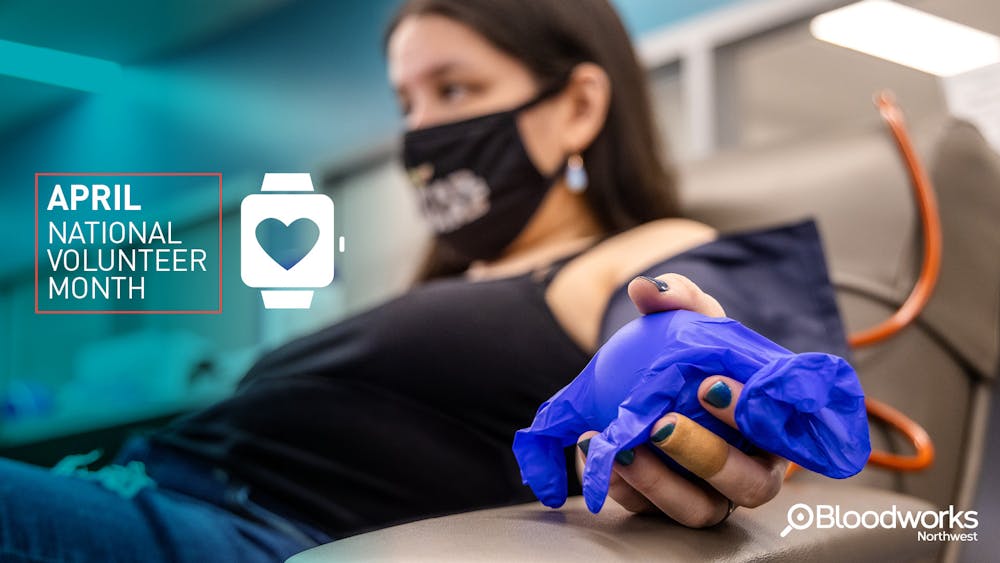One single blood donation can save up to three lives, according to the National Institutes of Health.
Western Washington University will host a blood drive on April 15 and 16 in Viking Union room 565. Those interested can make an appointment online or try for a same-day appointment if available.
Bloodworks Northwest is working with Western to host the blood drive. With 14 donation centers and hundreds of mobile sites, the nonprofit works to collect blood across the Western Washington and Western Oregon regions. That blood is then distributed to hospitals within those collection areas.

A Bloodworks Northwest mobile donation truck set up at the Evergreen Aviation and Space Museum parking lot in McMinnville, Oregon, on Sept. 20, 2024. Their sign out front tells the community they are open and ready for donations. // Photo courtesy of Bloodworks Northwest
Donors are usually in and out in an hour; the donation part takes about 10 minutes. You donate, leave with juice and cookies and know that your donation helped to change someone's life.
“We provide [the hospitals] about 95% of the blood components used throughout that entire footprint,” Sasha Seiden said, the organization's senior community engagement manager for North Puget Sound.
Seiden said every day, they aim to reach one thousand donations across their locations.
This week, Western students have the opportunity to donate blood and help Bloodworks meet that goal.
Annabelle Eckel is a second-year student who heard about the blood drive and has decided to become a first-time donor.
“My New Year's resolution was actually to give blood,” Eckel said.
Eckel expressed a desire to contribute positively to her community, but emphasized how that can be hard to do while balancing a busy schedule.
“Being a college student and being so time-constrained, giving blood is a quick and easy thing — knowing you did something good that has a pretty big impact,” Eckel said.
The impacts of giving blood are certainly big, and not a lot of donors know where their blood goes after they donate.
Seiden talked about how blood donations are commonly used for patients undergoing surgery, organ transplants, those who have bleeding disorders and especially for patients with cancer.
“About 25% of donated blood is used for cancer treatments. [...] It’s not just a one-time transfusion, it's needed ongoing throughout their entire treatment,” Seiden said.
No matter who you are or how busy your schedule is, finding a little time to donate blood can help create a powerful tool that saves lives.
To make giving blood that much easier for donors, Bloodworks Northwest has mobile donation trucks that travel all around the areas that they serve.
The nonprofit organization’s mobile sites run about 300 blood drives every month. They go to businesses, schools, universities and community groups to set up and collect blood, saving donors the trouble of commuting.
“It’s very beneficial to the community,” Seiden said. “We’re really trying to make it convenient to donate blood.”
Bloodworks Northwest also collects at refineries. Lisa Lindsey, the government and community relations director for the Phillips 66 Refinery in Whatcom County, said Bloodworks has been coming to collect at their location quarterly for a number of years.
“I think it's important to donate blood because you never know when somebody has that need,” Lindsey said.
This sentiment is more relevant and pressing than ever. Across the U.S., blood centers are experiencing a massive shortage of blood.
After COVID-19, the relationships donation centers had built with their communities waned significantly, creating problems with acquiring the amount of blood necessary to sustain those in need.
“We’re still very much in that phase of rebuilding the culture of blood donation,” Seiden said. “Pre-pandemic, high schools and colleges contributed about 25% of the blood that was being donated.”
This deficit is no small issue.
“There is no substitute for human blood. It's not manufactured, so we are very reliant on volunteer blood donors,” Seiden said.
Seiden shared that, in 2024, the average age of a whole blood donor at Bloodworks Northwest in Bellingham was 54 years old. At the mobile drives across their Washington and Oregon locations, it was 49 years old.
We, as students, have the power to change this. We must spread the word, make time to donate and organize drives in our area in order to help our community thrive.
“Whether it's your friend, your neighbor, a family member in Whatcom County — they’re relying on blood donors through Bloodworks Northwest to be giving blood,” said Seiden.

An informative flyer giving a brief overview of what to expect when donating blood on July 14, 2022, in Bellingham, Wash. It also details how frequently you can donate and what happens after donations. // Graphic courtesy of Bloodworks Northwest
Quincy Koch (she/her) is an opinion writer for The Front this quarter. She is a third-year student at Western, majoring in communication studies and minoring in journalism public relations. She loves spending time with friends, singing and adventuring outside. You can reach her at quincykoch.thefront@gmail.com.






